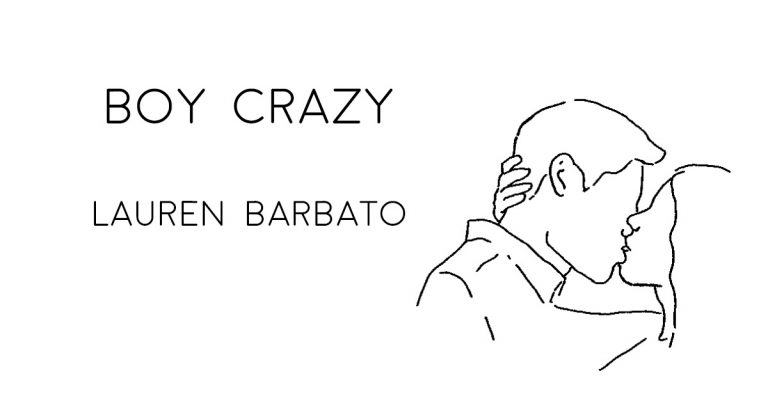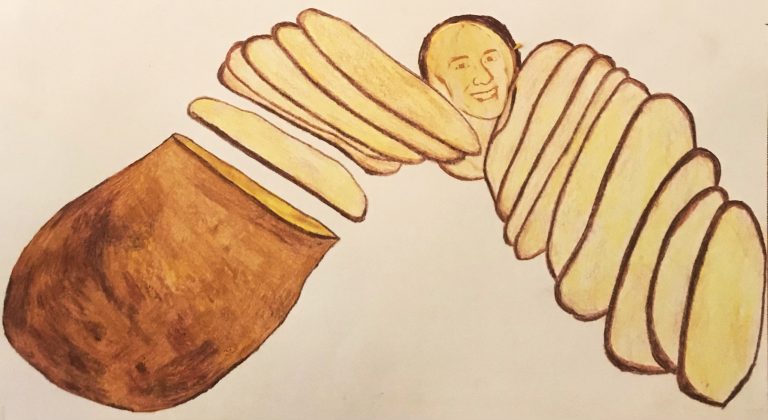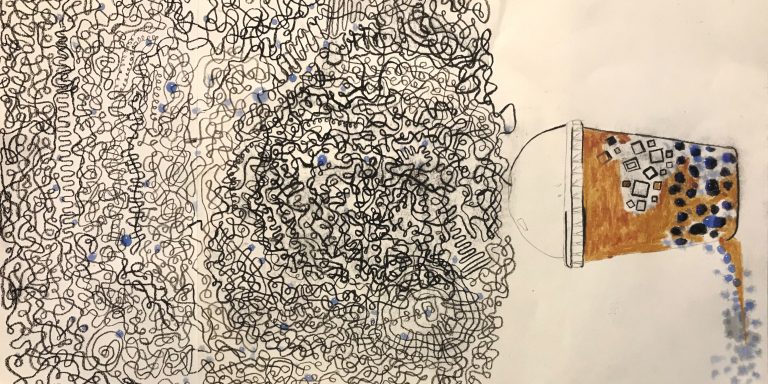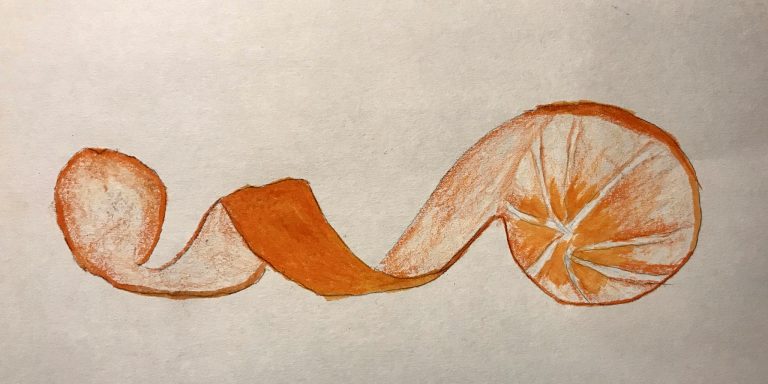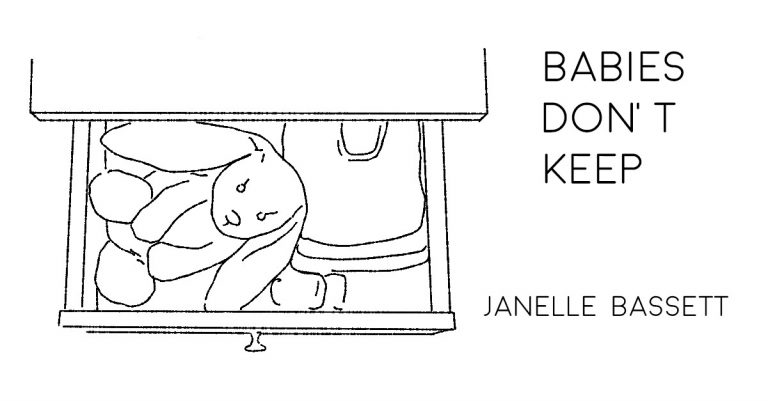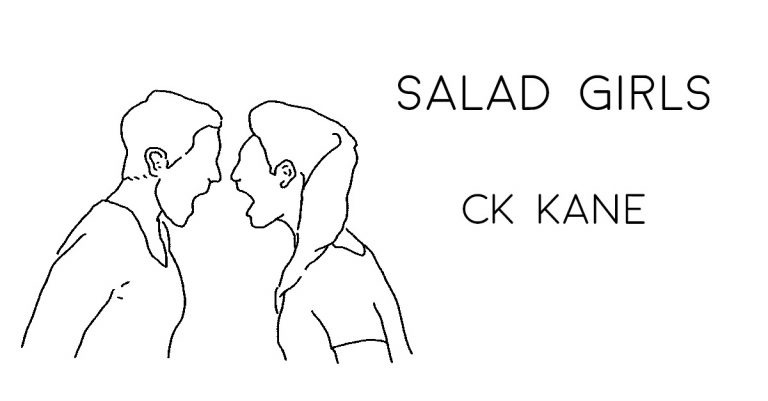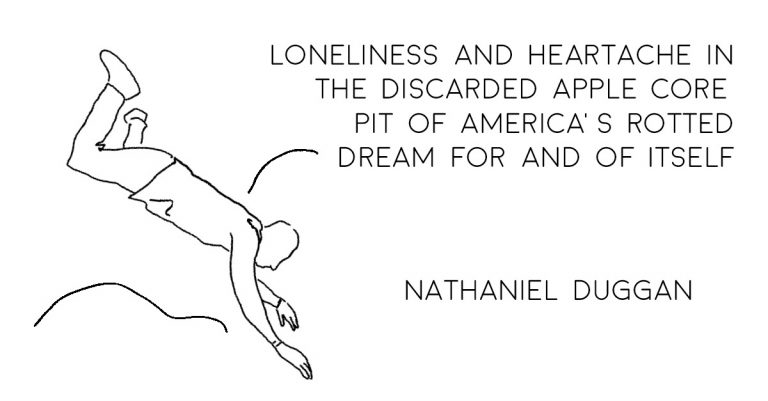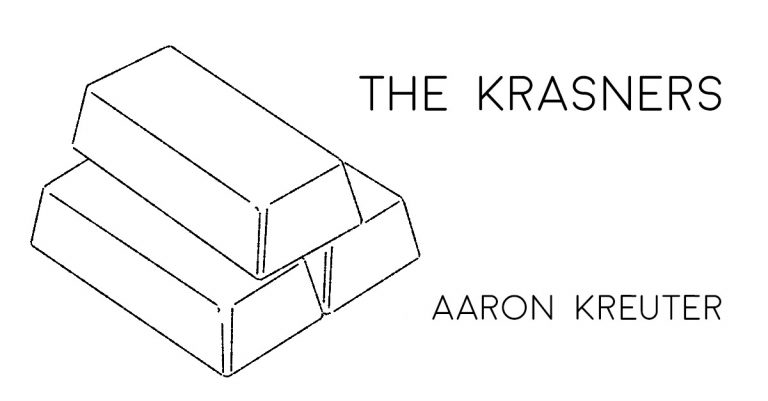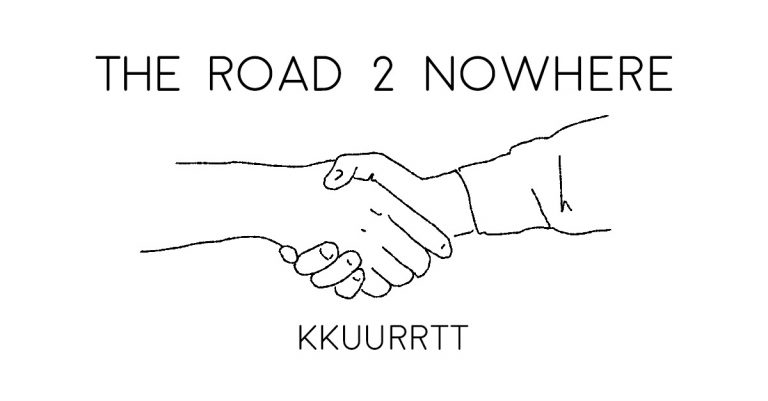
THROUGH THE LAUNDROMAT WINDOW by Rachel L.E. Klammer
Jane watches the world from across the laundromat. Her apartment window affords a view of the parking lot and inside the laundromat. Jane watches a plump and elderly man wash horse blankets for the third time that month. A sign near his machine says ‘please do not wash horse blankets.’
Jane has been watching the laundromat for three months, ever since she first moved to town during the ever-clinging winter. It is April now, and still snow and melting icicles crawl over building roofs. There will be snow lumped in the edges of some valleys and higher altitudes of the park into July.
Jane watches for Dale. She had not started by watching for Dale, but now it takes up much of her time. The window is foggy—the cold creeps in from under the edges and there is a draft, so Jane stuffs damp towels against the cracks so that she does not grow so cold at the window. Dale does not come, though the falling sun shines starbursts against her eyes in stinging heat, and leaves there dappled, dark, soft things. On the street below a man with a beer gut talks to another man, and the road could be one large slab of sidewalk with how rarely cars come by. One of the men holds a rake, and Jane wonders what they could be raking, as there are no leaves on the pavement. Do people rake pavement?
Jane passes the time by working on her art. She cuts shapes from the broad bodies of leaves like one might carve a linoleum block. She had pressed her desk against the window in her living room so that she could work and watch at the same time. She cuts patterns in leaves—intricate, delicate things, like birds with their hollow bones. Sometimes she carves poems, but other times she cuts animals or scenes. No one had wanted her leaves for a very long time, but now she is meant to be working—for a small gallery in Boston, thousands of miles away. Her aunt had given her the keys to a Gardiner apartment (the one with the west-facing window that looked out over the last block of town, and Yellowstone National Park behind it), because that was the thing artists did—retreat somewhere to work, like you put in one thing and out comes another thing.
Jane’s leaves are not right for cutting, because they have grown too dry since the fall, so she has to soak them in tubs of water in the fridge, and sometimes they are too sludgy and they tear. Jane does not leave her apartment so much anymore. The stretch of the pavement is not such a flat thing, and it rears often in front of Jane if she steps outside, spins her the way children spin, sick after carnival rides.
Jane is wiping at the leaves, trying to clean the sludge from their surface when Dale’s van pulls up. Jane jumps from her seat and grabs her camera from where it perches on the back of her couch.
Dale steps out of a grey-paneled van, one with curtains over the back windows and rust creeping up the bumper. Jane hadn’t known who Dale was at first—a man or a woman, and so had named them Dale, though it is so obvious now that Jane knows how to look. She had taught herself (had been taught) to appreciate the boundaries of things which were Dale the same way she had learned to appreciate modernism in art school.
Dale looks like the people at Jane’s art school on the west coast, with bleached hair half-shaved but long on top, and a tank top ripped so low Jane can see the sharp protrusion of ribs through binoculars. Dale wears a new tank top today, not one of the repurposed band tees that Jane usually sees (singers she has always heard of, but never heard)—but instead it is black and reads ‘fuck off’ in faint grey lettering, like one had dragged paintbrush bristles, jagged and stiff over still-wet cloth. Jane snaps a picture.
Dale has one laundry bag, always: an old pillowcase with stains on the bottom, faint rings of grey. Dale showers sometimes in the small stalls at the back of the laundromat, and they have a separate pillowcase for that for clean clothing and soap. That pillowcase has more stains where soap bottles had burst during the mountain climb, too much pressure or too little, as Dale’s van drove in and out of the park. Jane thinks Dale has come from lower places, where deer and coyote lope shambling, in smaller valleys that do not freeze, but suspend, always, in hanging humidity.
Jane presses the round of the binoculars to her eyes until cold metal fades to hot sting. Dale does not shower this time, butwashes their laundry on delicate with powdery detergent from a Ziploc bag. They tumble dry only half of it, laying out socks and base layers on the bench outside in the sun. Jane can see the fuzz of the wool, the pill of it, the wet imprints it leaves behind on wood, the way the dark damp seeps into the texture of the grain and creeps there, beyond the boundaries of the sock. Dale sits at the table near the window where they can watch the bench. The table is an old rusted thing taken from the local coffee shop when they had left it on the curb. One of Dale’s feet is propped up on the sill across from them, and Jane can see the cut of their boots, hard, old, and chapping, with mud-dried laces. Dale has strings, earbuds, hanging from their ears. Jane couldn’t see them before she had bought the binoculars from the woman at the E.L.K. Shop, but now she sees them clearly: white cord aged yellow and brittle.
Jane watches for a long while at the empty spaces until Dale finally gathers all their laundry, bundles it into their van, and drives away. Jane can see, still, the pile of dirt their shoes left on the windowsill, and the drying patches of wet in the sun. That night, when she lays in bed and the lights from the windows cast shadows past the leaves she has hung there, she thinks of her first night in Gardiner.
Jane had met a man at the bar that first night, still sweaty from moving boxes despite the dry air and cheeks just starting to peel. Her bangs hung low over her eyes, and she’d always meant to trim them but kept stalling before the barber door like a pinwheel turning over and over in the breeze. The bar is easier, dark and dank, lit by dust-covered neon and half-burnt bulbs. Rocko worked in the park, and she’d thought he was such a kind old man if not a little leery, but then weren’t they all like that? Wasn’t that the price one paid for their conversation and their beer, slid over harmlessly before one even knew they had entered the transaction?
Rocko had tried to fuck Jane on the street outside the laundromat—had first invited her over, and then had grabbed her arm and covered her mouth with his own, and Jane had closed her eyes and tried to think of how not to hurt his feelings, of how still to be good. Jane had tried to wait until he was finished, to explain, to tell him, no I’m sorry, you’re very sweet, but I have a boyfriend, a father, a brother. But Rocko hadn’t finished, had trailed the wet surface of his tongue down her face and neck and the start of her chest and left patches of sticky, pimpling skin, had reached his hand down the front of her jeans to scratch at underwear that still needed changing after the trip and Jane thought of old, crusty discharge catching against his fingers and lodging under his nails.
I’m sorry, Jane had said, I need to shower. I’m not very clean. I’m very tired. I’m sorry, I’ll be right back down, I just need to change, I’m sorry.
Jane sat in front of the window in her apartment and watched him until he left, and wondered what she might say to him if she saw him again.
———
Jane likes to make jarred oatmeal for breakfast. he mixes oats and milk in mason jars before she goes to bed because that is what people in videos do: five-minute Facebook recipes that scroll through her feed betweens ads and classmates who seem less familiar than they are. Jane doesn’t sleep much, so when she pads from bed in the morning, shaking with cold and low blood sugar, with eyes that burn with the effort to focus, the oats are still chewy and gummy. She sits and eats them by the window, wrapped still in her comforter, stomach aching, acid, with each bite.
Jane does not see Dale that morning because nobody does laundry two days in a row unless you are the old woman who lives in the cabin three blocks away. The goat woman comes every morning at 6:30, the same time the younger woman (a night waiter at the bar where Jane met Rocko) unlocks the door. The waiter has two young children, Jane thinks. That is why the waiter works two jobs, but sometimes people work two jobs even without children, so maybe the woman has no children. Maybe the woman is working off college loans, or maybe she just likes laundromats like Jane does.
Jane thinks the goat woman has to do laundry every morning because she lives with goats in her cabin, and Jane does not think goats can be potty trained, so the woman washes linens often, and Jane wonders if it might not be better for her to get her own washing machine. She wonders, if the woman really does have a cabin, she must also have a yard, and a place for a wash bin and clothesline. She wonders if the goats prefer the indoors, the feel of couch fiber and carpet, if they chew at siding and cords, or if they would rather be outdoors, fenced in her yard and munching on weeds.
Jane watches when the goat woman leaves an hour later, carrying big piles of fabric, bunched under and beneath and around the overhang of her breasts, the wedge of her stomach. Jane checks her email for messages from her mom, even though they have not emailed in a long while. There are emails from JoAnn Fabric telling her there is a sale on winter patterns, but nothing from anyone else. Sometimes, Jane pretends that JoAnn is an old woman, like a grandmother who is invested in fabric deals and doesn’t know she shouldn’t email so much, or that there are no fabric stores for miles.
Jane has a friend in the park, Jack, old enough to be her father, who she met that first week in the line at the grocery store. Jane hadn’t made eye contact with him, had stared at the way his shoes ghosted over cracks and gouged linoleum, but still he had talked to her and asked her where she was from. Jack had bought her coffee and she had taken it because she did not know how not to. He had been kind, and funny. He had asked about her life before, in Boston. He had asked about her art. Jane wanted him to like her. Jane wants him to like her.
Jane texts Jack things she finds funny throughout the day. Things like ‘horse blanket man is washing horse blankets again’ and ‘here's a picture of a nuthatch that is building a nest on my windowsill.’ He responds sometimes, with his own quip or something about the park, but most of the time he doesn’t and Jane works on her leaves and thinks about how, in a few short years, they’ll crumble to dust.
Jane gets angry, sometimes. Sometimes, Jane gets angry and punches herself, slams her arms against countertops and then gets angrier that she is too weak to do much damage, punches the drywall like a child punching through a pillow. Sometimes Jane can watch burst blood vessels bloom like mulberries buried beneath her skin, but never real bruises. She wonders what people would say about real bruises, what people would say if Rocko had fucked her there on the street against the hard surface of the brick wall.
Jane wants to write ‘look, I fell in the shower :(’ and send a picture of her mottled arm. Instead she says ‘I think the nuthatch had babies :).’ Jack texts back a smiley face.
That night, Jane dreams of women’s bodies, the way she drew them in art school—the smooth expanse of them, where pores and nipples and hair and mouth were rubbed out to nothing. She dreams of them, scrawled like boneless things, without muscle or sinew, on the surface of her bed, staring up or down or anywhere. She dreams her hands sink in when she touches them, that flesh falls away to bone—not bone, marrow—until she is them and they are her.
———
Dale does not come back the next day, because nobody does laundry every other day. Jane wonders what they are doing—if they live, always in the van, or if there is some place, some town somewhere, that contains Dale the way a pitcher holds water—how Dale pours. If Dale fills or is filled.
Jane is running out of oats, so she does not eat breakfast. Jane wonders if she could offer enough money to have the grocery store bring the groceries to her door, but the thought of dialing the phone makes her hands shake. They only have two employees, she thinks—one to stock shelves and another to work the register. One employee must come early, to squeeze guacamole from bags in the back room, to cut fruit and fry chicken.
Jane sits at her desk and works on her leaves, but they are too dry now and crumble beneath her fingers. She will not be able to get more, and the thought sits with her, hollow. She thinks of art galleries in Boston, bricked walls and cigarette butts. Jane checks her email and her phone. Jane looks at the mailbox from the top of the stairs. Jane sits by her window and watches the passing cars.
Jane feels her thoughts like one feels water, the rush of it around body—does it move, flow, or is it still? Does she move around it? Does it move around her?
As the sun disappears behind the swell of the mountains, she sees a paneled van.
Jane’s breath catches—the snap of surface tension when raindrop meets pond. Dale parks, always paralleled, wheels mashing against curb. A horn honks, once, twice, three times—a man leans out a truck window. He yells at Dale as Dale steps out of their van, mud splattered up the front of their pants, and flips him off.
Jane watches Dale walk inside, trailing dirt. Jane watches Dale’s hands, the red scrape of them, hanging thin patches of white skin and crusting blood dragging over the rip in a jean. Jane watches Dale strip to underwear in front of the machines, watches as their skin drags muddy dapples forward and back across the surface of their ribs with each turn, sports bra and boxer shorts and uneven, creeping tan, splotchy and browned.
Jane thinks they must know that she watches them, and the feeling excites her, makes her want to peel back the glass of her window like Saran from dough. Dale showers in the stalls that line the back wall—tall doors with no finish that are gouged over and crept in mold, and as she waits she remembers.
Jane remembers Rocko against the brick wall outside, remembers her cousin’s body years before, bracketed around her, pinning her to the wall behind his bed, remembers her own body, limp and brassy like a doll, the taste of her cousin’s mouth like nothing, the feel of nothing but wet and soft like the inside of a gourd before one had pulled the guts out for baking, the wet snap of it between fingers and caught beneath nails.
Jane watches Dale leave, watches them wrest on clothing still damp from the dryer, watches them spread damp towels over the dashboard of their van before driving around the corner and north—the only road out of town. Jane wonders where they sleep, if it is beneath trees or parked somewhere covered over in headlights, curtains pulled shut in the back.
Jane thinks of them, of breasts that aren’t mounds, that don’t erupt violently from skin like burgeoning pustules, but instead rise gently, sitting low enough to be nothing but a suggestion. She thinks of women, slung over in mud with hair that is not hair, but tangled, matted, bare feet and chipped nails. She thinks of women, not smoothed or planed, but rough, hewn over like sandpaper, the sting of them, the cut of their skin, and hers.
———
Jane talks to herself like her parents used to talk to her. Calls herself stupid when she thinks of a trip to the grocery store where she couldn’t manage to get the cashier to smile back at her. She thinks of the texts she sends to Jack and almost blocks his number, thinks of Dale, of their eyes meeting through the double windows and starts to cry. Later, when she cuts at leaves too soggy to tear, she tells herself she’s invisible, that she could fade out to almost nothing, take the apartment with her and live forever on the second floor of the building across from the laundromat—unrecognizable. How wonderful it would be, to be unobservable, to be unable to talk or act or do anything. A self-contained ecosystem, thought with no reaction. She thinks of following Dale’s van, grows uncomfortable at the idea that it could exist anywhere else besides the laundromat, that it doesn't simply fade away when it turns the corner of the block.
When Jane dreams, she dreams of Dale, crawling over the cold of her body. She dreams of swells, pushed together until they hurt, of flat chests and hair where it shouldn't be. She thinks of smooth plastic, the things that should be beneath her jeans, underwear and then—?
The not real Jane—the dream Jane—asks Dale if they love her.
Dale says no.

